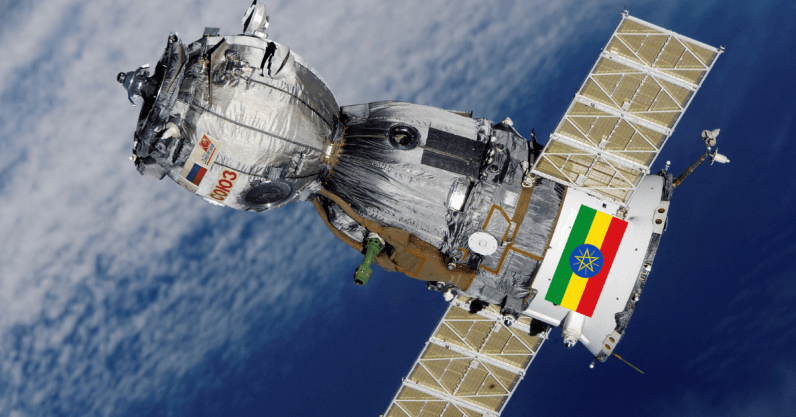
BY DARGIE KAHSAY
“Ethiopia is investing in the space science sector keeping in mind future development and its strategy clearly envisages meeting this future target,” says Abdisa Yilma, Ethiopian Space Science and Technology Institute (ESSTI) Director General.
Ethiopia launched its first ever satellite just a year ago in collaboration with China. Ethiopia’s effort of launching its own satellite is of multifaceted benefit economically, technologically and security wise, among others.
Ethiopia is spending tens of thousands of dollars for communication and broadcasting services satellite as it using other countries satellites.
Ethiopia is spending over USD 10 million annually for satellite rent for broadcast media services, according to Abdisa. In 2019, the Ethiopian Reporter also reported citing Ethio Telecom senior official that Ethio Telecom spends USD 12 million on annual fees for satellite service.
In addition to the expense spending for satellite rent, the communication and information depends on the goodwill of the satellite owners and there is also national security issue. This makes essential to have a country its own communication and other basic service providing satellites.
A year ago, on 19 December 2019, Ethiopia launched its first remote sensing satellite, Ethiopian Remote Sensing Satellite (ETRSS-1) with the help of China. Now, immediately after a year, Ethiopia takes the satellite officially from China and is celebrating a year’s anniversary of the launching of the satellite.
Abdisa stated that Ethiopia plans to launch three additional satellites in the coming ten years, which includes one communication and broadcasting satellite and two remote sensing satellites to support the country’s development and prosperity journey.
According to the Director-General in addition to supporting the country’s development by providing necessary information and data to other sectors, Ethiopia is working to make space science an industry itself and to generate additional income from the sector.
For him, for the successful space science development, the institute puts three main pillars as its focus areas, human resource capacity building, technology and infrastructural development and application developments.
These three pillars are the main focal points of the institute to build competitive space science research center which are pillars for the continuous engagement in the space science sector, he stated adding that Ethiopia clearly identifies its destination in the space science sector and puts strategy for the smooth development of the sector.
“Ethiopia is investing in the space science sector keeping in mind future development and its strategy clearly envisages meeting this future target,” Abdisa stated. In this case, the first satellite, ETRSS-1 is helping Ethiopian experts for capacity building in
addition to the services of the satellite to collect data for agricultural, mining and environmental observations among others.
Abdisa noted that the first two months of ETRSS-1 was testing period and managing the orbit system it found, after that the satellite started sending images and Ethiopia used the data for different purposes by analyzing it carefully by Ethiopian experts. During the early period of the satellite, the satellite development and related controlling issues were handled jointly by Ethiopian and Chinese scientists jointly.
But, following the outbreak of COVID-19 which restricted movements of people from country to country, the whole controlling, managing and operating process fails on the hands of Ethiopians. At this time, Ethiopian experts started managing the whole process and to fill the gaps started online communication with Chinese scientists.
This effort of Ethiopian professionals helps the country to continue operating the satellite smoothly and continues receiving information from the satellite and analyzing it well and using for the necessary issues. In addition to operating the satellite, this helps the Ethiopian experts in the sector to build their capacity of how to manage and operate satellite and analyzing the information by their own capacity. This effort builds a huge capacity and Ethiopian experts this critical time to opportunity, he stated.
By building its capacity in all ways, human development, infrastructural and technology, Ethiopia is working to make space science an industry itself and to make it a crucial role in playing the country’s journey of prosperity and development.
For Abdisa, this includes making the space science as income generator by itself and to support other sectors development by feeding necessary information, in addition to saving the country’s expenditure for satellite rent for different fields.
As to him, as its strategy the institute plans to launch three additional satellites to space in the coming ten years. One is communication and broadcasting satellite which will help the country to save over 20 million USD annually.
In addition, the two satellites planned to launch are remote sensing satellites to support the country’s development journeys in different fields.
The target of Ethiopia in developing space science sector is aiming at improving the public life, targeting economic development, to support the job creation efforts of the country and solving the problems in every sector that can solve with space science supports, the director-general stated. In this case, with specified goals and clear strategy, Ethiopia is scoring appreciable outcomes.
By exploiting the comparative advantage that Ethiopia is having in this sector, the institute is working to meet the country’s target in space science development, he added. Comparing with our neighboring countries, Ethiopia’s space science journey is on good development and showing significant improvements, according the director general.
In space science sector in Africa, Egypt, Algeria, Nigeria, Morocco and South Africa have improved development and Ethiopia’s plan is to become competitive in Africa’s space science sector and its journey is showing significant developments.
But, according to Abdisa, the space science development of Ethiopia which has over 100 million population is on its initial phase. To serve 100 million population, the sector needs further developments, he argued. The overall plans and targets of Ethiopia is to meet this target of having space science sector to serve for its populations needs to support the endeavor of the development and prosperity journey.
Investing in space science is supporting for overall developments of a country and it is not a luxury issue even for developing and poor countries. Now a days, economic, social and political developments have direct linkages with space science development and developing space science for a country is crucial issue.
The Ethiopia Herald December 20/2020




